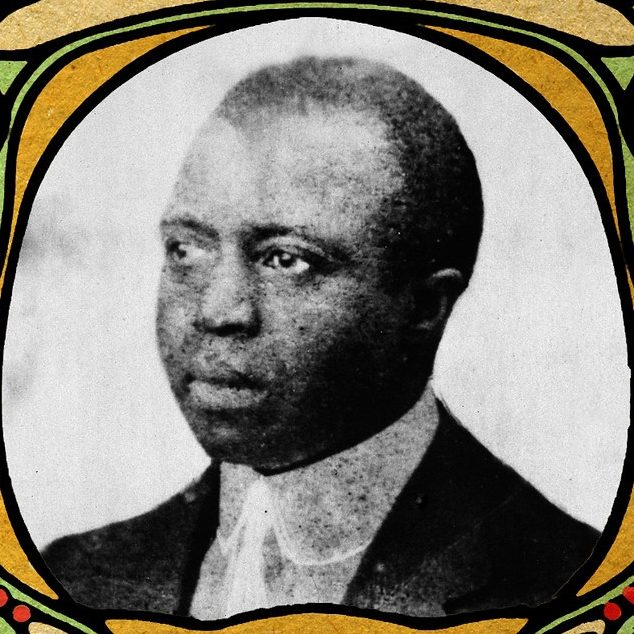Scott Joplin
EARLY 20TH CENTURY AMERICAN COMPOSER
Personal Life
Born in Texas on the 24th of November 1868, Scott Joplin began playing the piano whilst still a child. Joplin had plenty of musical inspiration with a musical family consisting of a violinist father and a singing banjoist mother. Being a capable vocalist himself as well as a cornet player, it was the piano he would commit to, learning the trade from his hometown music teacher Julius Weiss.
By his teenage years, Joplin was working as a travelling musician. Frequenting the bars and clubs where ragtime music was being formed through genre cross-pollination, by the 1880s, he lived in Missouri before leading the Chicago outfit the World Fair in 1893. During the 1890s, Joplin attended the George R. Smith College in Sedalia and would become a teacher to others within the ragtime scene.
Career
Scott Joplin is an incredibly influential composer, frequently referred to as ‘the King of Ragtime’ thanks to seminal works like ‘Solace’ and the no.1 ragtime piece of all-time, ‘The Maple Leaf Rag’. He was also a fine writer of operas, creating the pieces Treemonisha and A Guest of Honor.
During his time in Sedalia, Joplin published his first two songs; the waltzes ‘Please Say You Will’ and ‘A Picture of Her Face’. Later, the composer unfortunately ran into ownership disputes after his first ragtime piece ‘Original Rags’ was credited to another against his will. Consequently, Joplin made certain that royalties were coming his way when 1899’s ‘The Maple Leaf Rag’ was published. After a shaky release, it went on to become both his and ragtime’s most successful piece.
Riding this wave, Joplin doubled down on ragtime, winning himself widespread adoration with works such as ‘Cleopha’, ‘Solace’ and ‘The Entertainer’. He also had to deal with much dismissively prejudiced ‘criticism’ from some in the white music press, condemning ragtime purely based on its African-American roots and deviation from the norm. Publishing his book The School of Ragtime: Six Exercises for Piano in 1908, Joplin retaliated with the written word by explaining the intricacies of ragtime music for any aspiring performer.
Expanding his horizons to the long-form as the 20th century dawned, Joplin’s 1902 ballet Rag Time Dance was followed swiftly by the 1903 opera A Guest of Honor. Afterwards, the now New York-based Joplin embarked on his ambitious Treemonisha project. A theatrical piece covering a number of genres, this would sadly not be fully realised for many decades, though it did see a more modest adaption for piano and voice in 1915.
Though he remained very active through this decade, come 1916, Joplin’s health began to decline due to untreated syphilis, and he passed away on the 1st of April 1917 in New York.
Joplin’s legacy, however, would very much endure. Ragtime saw renewed popularity in the 1940s before exploding in 1970s America, and Joplin’s ‘The Entertainer’ would even be used as the theme for the 1973 blockbuster The Sting. With Treemonisha finally making the stage on Broadway two years later, 1976 delivered a posthumous Pulitzer prize for the composer.
With such a crucial influence, Scott Joplin can be safely considered nothing less than a musical pioneer.

Did You Know?
‘The Maple Leaf Rag’ was Joplin’s defining work, yet it needed a bit of exposure for the public to experience its brilliance. With help from the publisher John Stark, the piece would go on to sell more than a million copies!

Scott Joplin Recordings
Quick Guide...
Music Lessons





